
Video reference:
https://youtu.be/ZoqgAy3h4OM
Reasons to start a company
- Passion – you can’t not do it (a pathological obsession)
- You are the best person to make this happen by starting the company.
- The problem was so important we could not stop working on it
Reasons not to start a company:
- Become very wealthy
- Massive impact
- Lifestyle
- Autonomy in how I spend my time
- Building a killer feature that might work well in an existing company
Actual state of affair doing startups
- Most markets already have competing players already
- Valuation multiples are lower now in the public market
- Existing entrenched players are now smarter and faster
- Tech Worker Talents are becoming more expensive
- Real estate in the bay area has gone up
- Founders more likely end up with nothing
- Founders have long term commitments – 10 years or more
- Employees get to leave after a few years
- Existing companies provide existing teams and infrastructure that help you succeed
- Impact gets magnified via infrastructure setup by company
- A lot of heads down time doing hard work
- High stress level
- Each round of fund raising is demanding
- Always feeling stretched thing
- Team is relying on you to deliver
- Team members is always being poached by recruiters
- Working on problems that could not be delegated
- Dealing with human issues
- You are always on call
- You are the leader and need to be a role model
- When joining late stage companies, you can ask existing employees and gain better clarity
- Founder breakups are really bad. To work with someone that you have worked with for a long time and need to discuss a lot of the details
Why the need for a Silicon Valley like community?
- High concentration of people doing the same nature of work
- They will take your wild ideas seriously even when they don’t really understand it
- They will be willing to support your idea
- There is no tall poppy syndrome
- Culture of paying it forward
The Idea
- The idea is the most important thing
- Derivative ideas are not likely to succeed
- Pay attention to the problems you yourself are facing
- Students tend to be at the fore front of technology
- At the forefront, you can predict the Great Wave that is about to happen –
- new things become possible that were never possible before
- Startups you can do things that would otherwise could never have happened
- Watch out for what peers are doing and what they are excited about – even/especially if it looks like a toy
- Its easier to start a hard company – easier to attract talent
- Nurturing Idea:
- Finding good ideas are not a solo endeavor.
- Find a group of smart people that you can start bouncing ideas off of
- Look for people that don’t immediately shoot a bad half baked half form idea down
- See if people are willing to think how big if it worked
The importance of co-founder
- Look for the attributes in the following priority
- Values first – make sure they believe in the same thing you believe in
- Aptitude second – make sure they have the ability to learn and then execute at the level that is need for the project to work
- Specific skill set last: a good bonus is if they already have the ability required to execute on what is required for the project
- Humble and not feel entitled
- Shared history and bond helps you keep going during times when it does not logically make sense to continue on the project
- Determination is the most valuable attribute when looking for co-founders
- I always figure it out, I never give up
- Humble and not entitled
- They are doing it because they really want to build the stuff
The product
- Approach: A small number of people who loves you instead of a lot of people that like you
- Next find more people that will love the product
- A good indicator:
- Retention and frequency of use
- How does it compare to another product in the space
- Nothing but a great product will save your company
- Talk to users that will help you build this great product
- People generally don’t want to disappoint you, they will fluff talk to you by saying they love your product, but you don’t learn much
- Need to find out exactly what they are using your product for
- Watch them use your product to identify where they are doing things that doesn’t make sense because they are using something else
- Ask them why they have not recommended this product to someone else
- Ask them why they are not willing to pay for this product
- Figure out times when they stop using your product and use some other products instead
- Top level questions don’t help you
Getting the first 100 users
- Email people that you already know
- Call someone up
- If it is a paid product, you need to charge them
- Research on people that might use your product
- Conversion rate is 1-2%
- Send targeted email
- Social Media / Hackernews
- Need to figure out how to keep it on going
- The laziest way forward is to buy ads on Google and get people to come
Good operating principles
- Best founders:
- they go visit their users,
- they go sit in the office of their users,
- AirBnB – they go live with their users
- Get to know their users really really well
- Short cycle time – talk to their users ask them what works or not, come up with another prototype and repeat the cycle
- The ideal goal is to build the fasting iterating company
- Make a long term commitment to a project, think of it as a 10 year project
- cause you to think in a different way
- cause you to hire very different people
- Lean and Mean versus Big and Powerful
- Stay lean and really really small until everything is working really well
- Flexibility of a company decreases with the Square of the number of employees
- Once things are working you will need to switch into hyper scale mode and get as big and as fast as you can with great people
- The signal to switch into Big and Powerful mode is when users are really begging to have your product and you are working 80 hours a week because people are all clamoring to get your product and you are not able to build it fast enough
- Hiring
- Resist the urge to hire mediocre people
- The team you build is the company you build
- Best
- On Rejections
- Take it as a learning experience of what didn’t work
- Iterate to improve base on feedback
- Fiduciary duty to your stakeholders
- maintain personal relationship
- take care of your own health
- Best CEO spends huge amount of time hiring and retaining their people
- Figure out the MISSION
- Helps getting people to join them
- Helps media to write about them
- Become a great evangelist for this mission
- Clearly think and communicate this mission
Fund raising
- When people are desperate to give you money
- When you really need the money
- You need to display progress to warrant the funding you need
Appendix
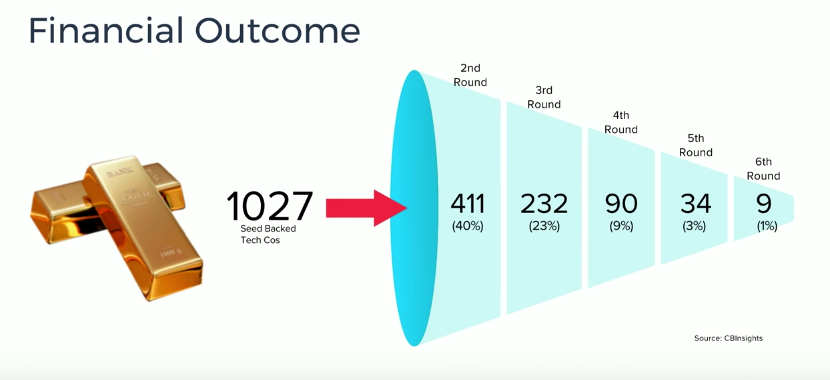
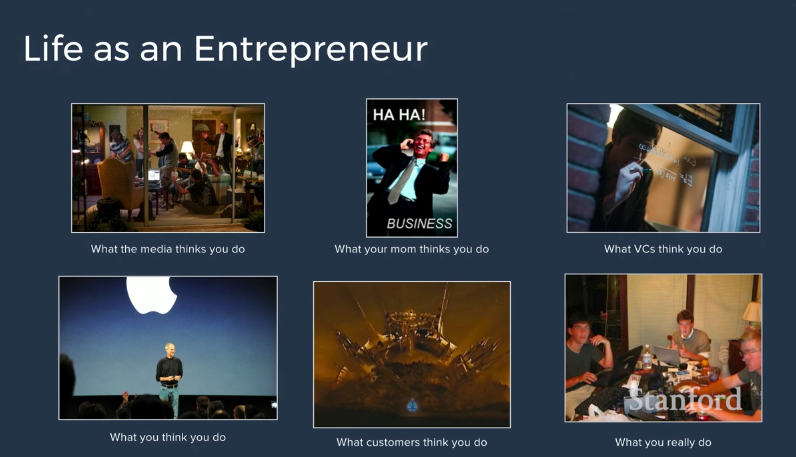
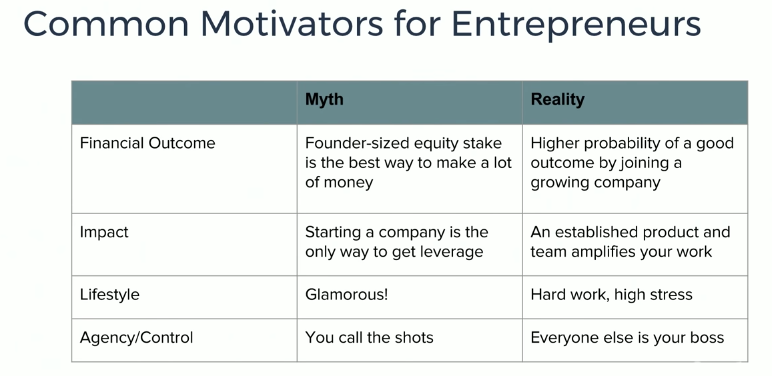
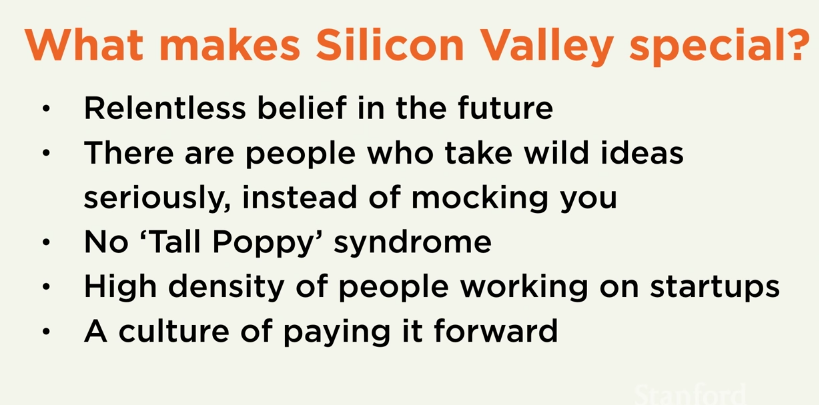
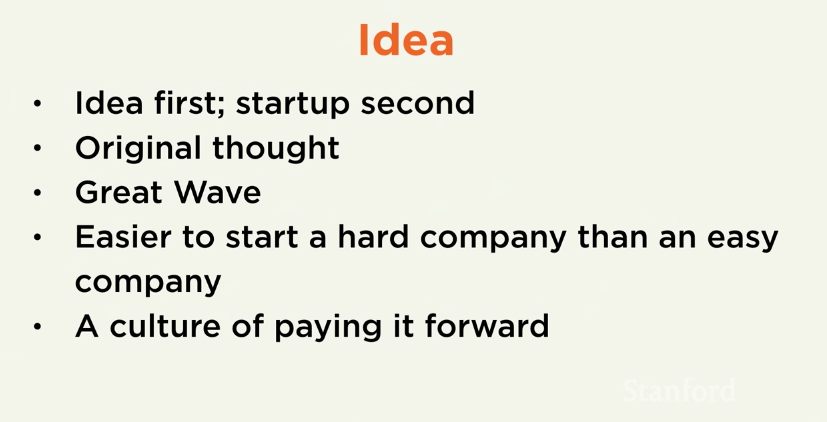
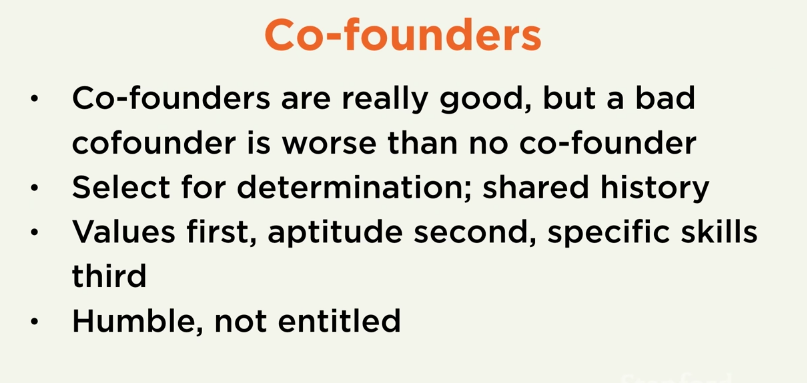
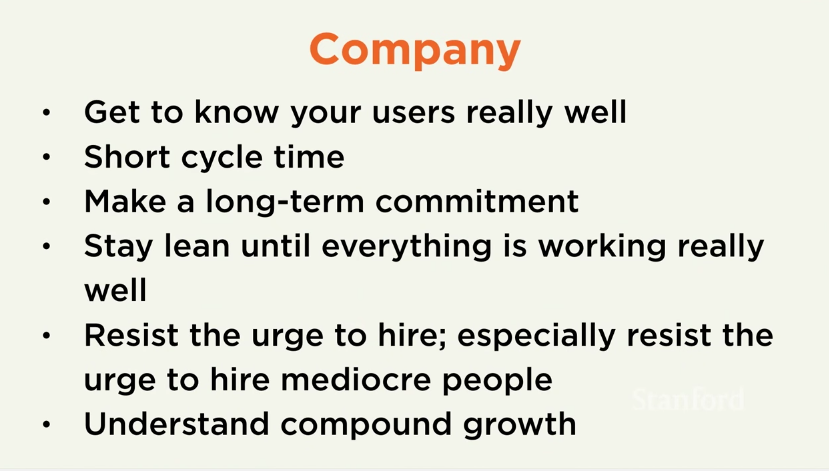
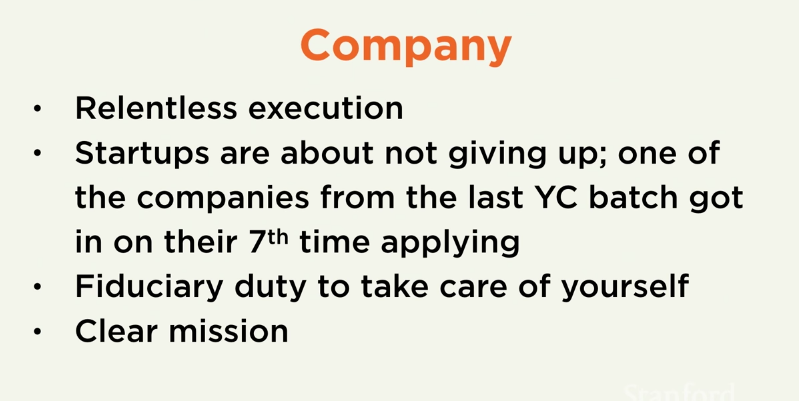
Further references
- Book: Hard things about hard things – Ben Horowitz
- Book: The score takes care of itself – Bill Walsh









